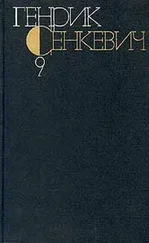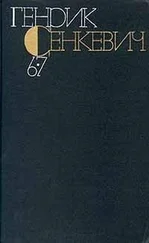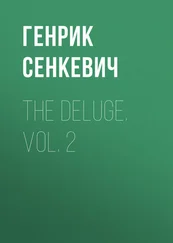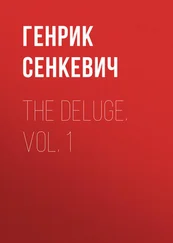Генрик Сенкевич - So Runs the World
Здесь есть возможность читать онлайн «Генрик Сенкевич - So Runs the World» — ознакомительный отрывок электронной книги совершенно бесплатно, а после прочтения отрывка купить полную версию. В некоторых случаях можно слушать аудио, скачать через торрент в формате fb2 и присутствует краткое содержание. Жанр: foreign_antique, foreign_prose, на английском языке. Описание произведения, (предисловие) а так же отзывы посетителей доступны на портале библиотеки ЛибКат.
- Название:So Runs the World
- Автор:
- Жанр:
- Год:неизвестен
- ISBN:нет данных
- Рейтинг книги:5 / 5. Голосов: 1
-
Избранное:Добавить в избранное
- Отзывы:
-
Ваша оценка:
- 100
- 1
- 2
- 3
- 4
- 5
So Runs the World: краткое содержание, описание и аннотация
Предлагаем к чтению аннотацию, описание, краткое содержание или предисловие (зависит от того, что написал сам автор книги «So Runs the World»). Если вы не нашли необходимую информацию о книге — напишите в комментариях, мы постараемся отыскать её.
So Runs the World — читать онлайн ознакомительный отрывок
Ниже представлен текст книги, разбитый по страницам. Система сохранения места последней прочитанной страницы, позволяет с удобством читать онлайн бесплатно книгу «So Runs the World», без необходимости каждый раз заново искать на чём Вы остановились. Поставьте закладку, и сможете в любой момент перейти на страницу, на которой закончили чтение.
Интервал:
Закладка:
They utilized the philological faculty of the senses, on the strength of which repulsive impressions appear to us stronger and more real than agreeable, and they abused that property beyond measure.
There was created a certain kind of travelling in putridness, because the subjects being exhausted very quickly, there was a necessity to find something new which could attract. The truth itself, in the name of which it was done, was put in a corner in the presence of such exigencies. Are you familiar with Zola's "La Terre"? This novel is to represent a picture of a French village. Try and think of a French village, or of any other village. How does it look altogether? It is a gathering of houses, trees, fields, pastures, wild flowers, people, herds, light, sky, singing, small country business, and work. In all that, without any doubt, the manure plays an important part, but there is something more behind it and besides it. But Zola's village looks as if it was composed exclusively of manure and crime. Therefore the picture is false, the truth twisted, because in nature the true relation of things is different. If any one would like to take the trouble of making a list of the women represented in French novels, he would persuade himself that at least ninety-five per cent. of them were fallen women. But in society it is not, and cannot be, so. Probably even in the countries where they worshipped Astarte, there were less bad women. Notwithstanding this, the authors try to persuade us that they are giving a true picture of society, and that their analysis of customs is an objective one. The lie, exaggeration, liking for rotten things – such is the exact picture in contemporary novels. I do not know what profit there is in literature like that, but I do know that the devil has not lost anything, because through this channel flows a river of mud and poison, and the moral sense became so dulled that finally they tolerated such books which a few decades ago would have brought the author to court. To-day we do not wish to believe that the author of "Madame Bovary" had two criminal suits. Had this book been written twenty years later, they would have found it too modest.
But the human spirit, which does not slumber, and the organism that wishes to live, does not suffer excess of poison. Finally there came a moment for hiccoughs of disgust. Some voices began to rise asking for other spiritual bread; an instinctive sentiment awakes and cries that it cannot continue any longer in this way, that one must arise, shake off the mud, clean, change! The people ask for a fresh breeze. The masses cannot say what they want, but they know what they do not want; they know they are breathing bad air, and that they are suffocating. An uneasiness takes hold of their minds. Even in France they are seeking and crying for something different; they began to protest against the actual state of affairs. Many writers felt that uneasiness. They had some moments of doubt, about which I have spoken already, and those doubts were stronger on account of the uncertainty of the new roads. Look at the last books of Bourget, Rod, Barrès, Desjardin, the poetry of Rimbaud, Verlaine, Heredia, Mallarmé, and even Maeterlinck and his school. What do you find there? The searching for new essence and new form, feverish seeking for some issue, uncertainty where to go and where to look for help – in religion or mysticism, in duty outside of faith, or in patriotism or in humanity? Above all, however, one sees in them an immense uneasiness. They do not find any issue, because for it one needs two things: a great idea and a great talent, and they did not have either of them. Hence the uneasiness increases, and the same authors who arouse against rough pessimism of naturalistic direction fell into pessimism themselves, and by this the principal importance and aim of a reform became weaker. What remains then? The bizarre form. And in this bizarre form, whether it is called symbolism or impressionism, they go in deeper and become more entangled, losing artistic equilibrium, common sense, and serenity of the soul. Often they fall into the former corruption as far as the essence is concerned, and almost always into dissonance with one's self, because they have an honest sentiment that they must give to the world something new, and they know not what.
Such are the present times! Among those searching in darkness, wandering and weary ones, one remained quiet, sure of himself and his doctrine, immovable and almost serious in his pessimism. It was Emile Zola. A great talent, slow but powerful and a potent force, surprising objectivism if the question is about a sentiment, because it is equal to almost complete indifference, such an exceptional gift of seeing the entire soul of humanity and things that it approaches this naturalistic writer to mystics – all that gives him a very great and unusual originality.
The physical figure does not always reproduce the spiritual individuality. In Zola, this relation comes out very strikingly. A square face, low forehead covered with wrinkles, rough features, high shoulders and short neck, give to his person a rough appearance. Looking at his face and those wrinkles around the eyes, you can guess that he is a man who can stand much, that he is persevering and stubborn, not only in his projects but in the realization of them; but what is mere important, he is so in his thinking also. There is no keenness in him. At the first glance of the eye one can see that he is a doctrinarian shut up in himself, who does not embrace large horizons – sees everything at a certain angle, narrow-mindedly yet seeing distinctly.
His mind, like a dark lantern, throws a narrow light in only one
direction, and he goes in that direction with immovable surety.
In that way the history of a series of his books called "Les
Rougon-Macquart" becomes clear.
Zola was determined to write the history of a certain family at the time of the Empire, on the ground of conditions produced by it, in consideration of the law of heredity.
There was a question even about something more than this consideration, because this heredity had to become the physiological foundation of the work. There is a certain contradiction in the premises. Speaking historically Rougon-Macquart had to be a picture of French society during its last times. According to their moral manifestations of life, therefore, they ought to be of themselves more or less a normal family. But in such a case what shall one do with heredity? To be sure, moral families are such on the strength of the law of heredity – but it is impossible to show it in such conditions – one can do it only in exceptional cases of the normal type. Therefore the Rougon are in fact a sick family. They are children of nervousness. It was contracted by the first mother of the family, and since that time the coming generations, one after another, followed with the same stigma on their foreheads. This is the way the author wishes to have it, and one must agree with him. In what way, however, can a history of one family exceptionally attainted with a mental disorder be at the same time a picture of French society, the author does not explain to us. Had he said that during the Empire all society was sick, it would be a trick. A society can walk in the perilous road of politics or customs and be sick as a community, and at the same time have healthy individuals and families. These are two different things. Therefore one of the two: either the Rougon are sick, and in that case the cycle of novels about them is not a picture of French society during the Empire – it is only a psychological study – or the whole physiological foundations, all this heredity on which the cycle is based, in a word Zola's whole doctrine, is nonsense.
I do not know whether any one has paid attention to Zola at this aut aut ! It is sure that he never thought of it himself. Probably it would not have had any influence, as the criticisms had no influence on his theory of heredity. Critics and physiologists attacked him ofttimes with an arsenal of irrefutable arguments. It did not do any good. They affirmed in vain that the theory of heredity is not proved by any science, and above all it is difficult to grasp it and show it by facts; they pointed in vain that physiology cannot be fantastical and its laws cannot depend on the free conception of an author. Zola listened, continued to write, and in the last volume he gave a genealogical tree of the family of Rougon-Macquart, with such a serenity as if no one ever doubted his theory.
Читать дальшеИнтервал:
Закладка:
Похожие книги на «So Runs the World»
Представляем Вашему вниманию похожие книги на «So Runs the World» списком для выбора. Мы отобрали схожую по названию и смыслу литературу в надежде предоставить читателям больше вариантов отыскать новые, интересные, ещё непрочитанные произведения.
Обсуждение, отзывы о книге «So Runs the World» и просто собственные мнения читателей. Оставьте ваши комментарии, напишите, что Вы думаете о произведении, его смысле или главных героях. Укажите что конкретно понравилось, а что нет, и почему Вы так считаете.












